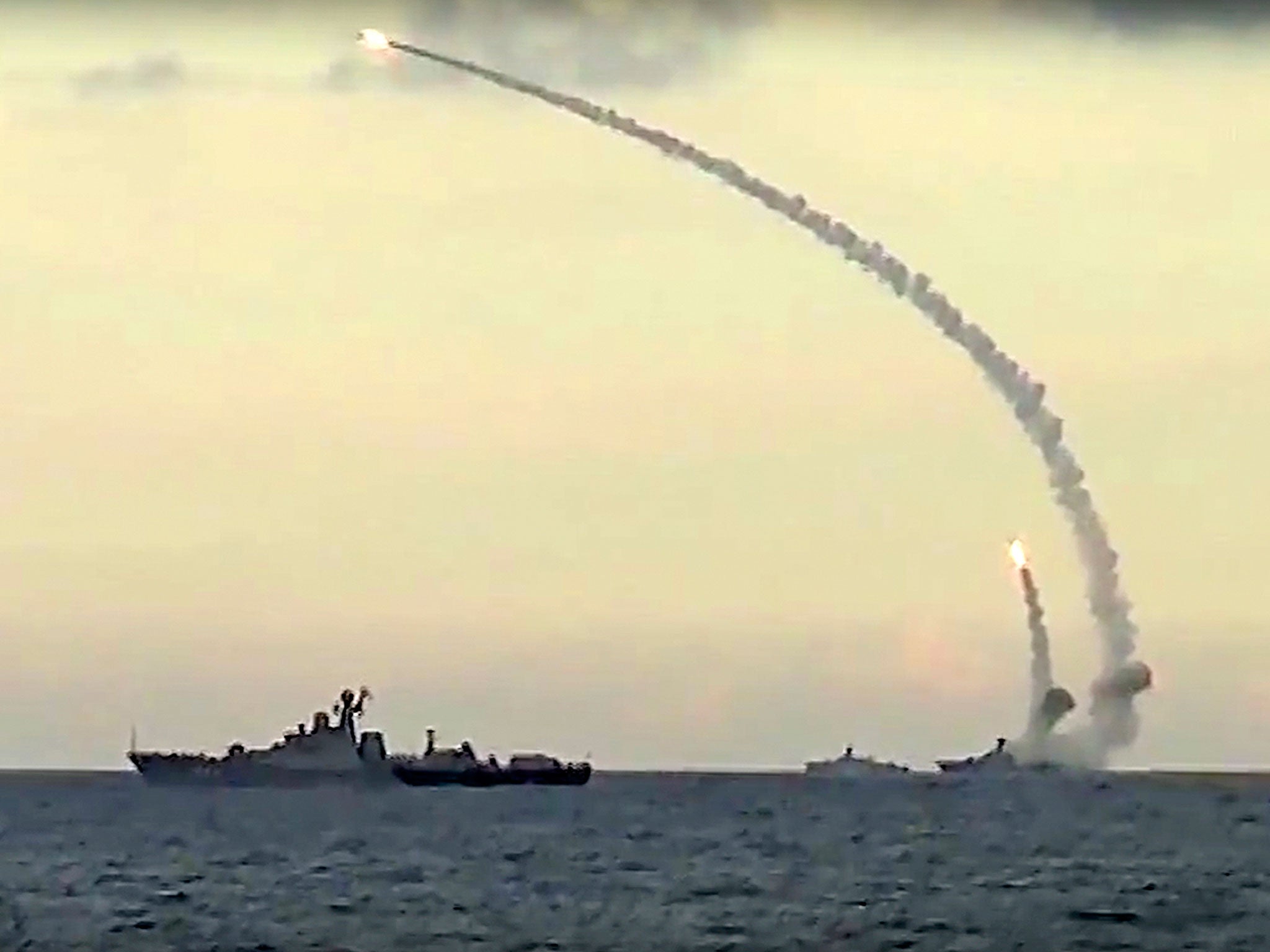Russian submarine armed with cruise missiles enters Mediterranean Sea near Syrian coast
The submarine can remain undetected under water for long periods of time, earning it the nickname 'black hole'

A Russian submarine equipped with cruise missiles has sailed into the eastern area of the Mediterranean Sea, near the Syrian coast.
The cruise missiles on board the Kilo-class submarine, which is from the Caspian Flotilla fleet, are similar to those Russian warships recently used to hit Isis targets, according to a source in the Russian MOD cited by Russian news agency Interfax.
The Rostov-on-Don diesel-electric submarine is considered one of the quietest in the world and possesses an extended combat range, Russia Today reports.
It can remain undetected under water for long periods of time, earning it the nickname "black hole" from Nato.
Russia fired 18 cruise missiles from one of its ships in the Caspian Sea last month, targeting Raqqa, Idlib and Aleppo.
President Vladimir Putin decided to help Syrian President Bashar al-Assad after a Russian airliner carrying 224 people exploded mid-air after taking off from the Egyptian resort of Sharm el Sheikh.
Isis claimed responsibility for the crash.
"Our military work in Syria must not only continue," President Putin said at the time, "it must be strengthened in such a way so that the terrorists will understand that retribution is inevitable."
Join our commenting forum
Join thought-provoking conversations, follow other Independent readers and see their replies
Comments
Bookmark popover
Removed from bookmarks